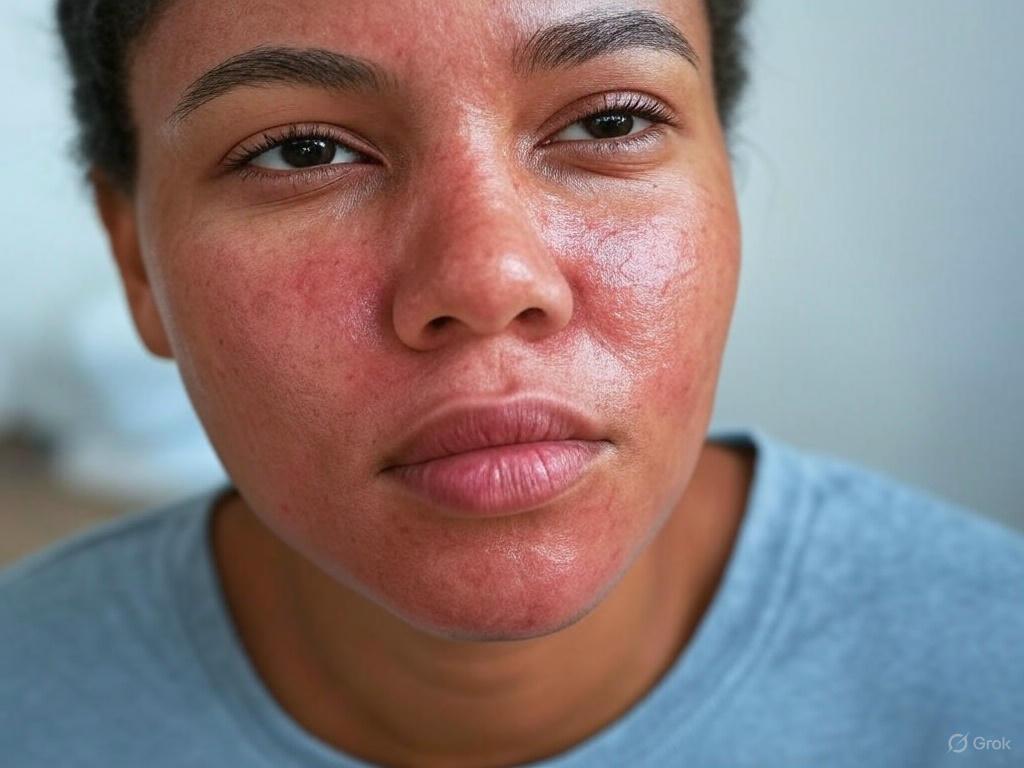Notifications

6 minutes, 51 seconds
-26 Views 0 Comments 0 Likes 0 Reviews

Dealing with redness in your skin can be frustrating, whether it's a result of sensitivity, rosacea, or irritation. When you experience redness, your skin is essentially signaling that something isn’t quite right, and your skincare routine might be playing a part. To manage and reduce redness, it’s crucial to be mindful of the products and ingredients you use. Here are key things you should avoid in your skincare routine if you have redness:
Exfoliating is a common step in many skincare routines, but for those with redness, using harsh physical or chemical exfoliants can exacerbate the problem. Scrubs with large, abrasive particles can irritate your skin, causing more inflammation. Similarly, strong chemical exfoliants like high concentrations of AHAs (alpha-hydroxy acids) or BHAs (beta-hydroxy acids) can strip the skin of its natural moisture, leaving it more sensitive and prone to redness.
Alternatives: Instead of harsh exfoliants, opt for gentler exfoliating ingredients like lactic acid or enzyme-based exfoliators. These are milder and can help smooth the skin without causing irritation.
Alcohol is a common ingredient in toners, astringents, and some serums, but it can be very drying and irritating for sensitive skin. When alcohol evaporates, it strips moisture from the skin, leading to dehydration and increased sensitivity, which can worsen redness. Avoid any products that list alcohol high up in the ingredients list, especially if you have skin prone to redness or irritation.
Alternatives: Look for alcohol-free toners or hydrating serums that contain soothing ingredients like aloe vera, glycerin, or hyaluronic acid. These ingredients will help lock in moisture and reduce the appearance of redness.
Fragrances and artificial dyes are common irritants in many skincare products. These ingredients can trigger allergic reactions or simply cause skin to become more inflamed, making redness worse. Even products labeled as "unscented" can sometimes contain masking fragrances that may still irritate the skin.
Alternatives: Choose skincare products labeled as "fragrance-free" or "hypoallergenic." These formulations are less likely to cause irritation and are designed for sensitive skin. Additionally, opt for products with natural, calming ingredients like chamomile or calendula.
Some active ingredients, while beneficial for many skin concerns, can be too intense for those with redness. Retinol and vitamin C, for example, can be very irritating to sensitive skin, causing stinging, redness, or peeling. While these ingredients are effective for anti-aging and brightening, they might not be the best choice for skin that is already inflamed or reactive.
Alternatives: If you want to incorporate retinol or vitamin C into your routine, look for formulations with lower concentrations or those designed for sensitive skin. Alternatively, you can try calming ingredients like niacinamide, which can help strengthen the skin's barrier and reduce inflammation without irritation.
Using hot water to cleanse your face might feel soothing at first, but it can actually contribute to skin redness. Hot water strips your skin of its natural oils and increases blood flow to the skin’s surface, making redness more pronounced. For those with sensitive skin, exposing the skin to hot water can lead to dryness and irritation.
Alternatives: Opt for lukewarm water when cleansing your face. Lukewarm water helps preserve the skin's natural barrier and prevents unnecessary irritation, allowing your skincare products to work effectively without triggering redness.
Constantly switching products or introducing new products too quickly can be a recipe for disaster if you have sensitive skin. New ingredients or formulations might irritate your skin, especially if your skin is already inflamed or reactive. This can result in more redness and irritation, leaving your skin feeling overwhelmed.
Alternatives: Stick to a simple, consistent skincare routine with products that are known to be gentle on sensitive skin. Gradually introduce new products and allow your skin time to adjust before trying additional active ingredients.
While sunscreen is essential for protecting your skin from harmful UV rays, it’s important to be cautious about the type of sunscreen you use, especially if you have redness. Some chemical sunscreens can be irritating and may cause sensitivity, which could worsen redness. Overapplying or using a sunscreen that doesn’t match your skin type can also lead to breakouts and irritation.
Alternatives: Opt for a mineral sunscreen (zinc oxide or titanium dioxide) as these are often less irritating to sensitive skin. Mineral sunscreens work by sitting on top of the skin rather than being absorbed, offering protection without causing irritation.
Managing skin redness requires a thoughtful, gentle approach. Avoiding harsh exfoliants, alcohol-based products, fragrances, strong actives, and hot water can significantly reduce irritation and improve the appearance of redness. Instead, focus on hydrating, soothing, and barrier-repairing ingredients like niacinamide, aloe vera, and ceramides. With a little patience and consistency, you can calm your skin and achieve a more balanced complexion. learn more here - https://uk.mederbeauty.com/collections/redness-and-rosacea

